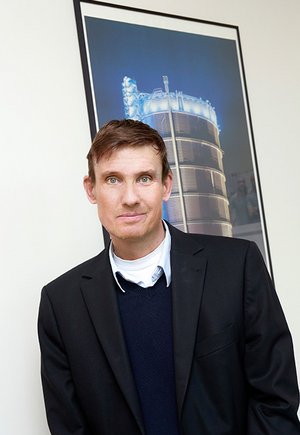
The Faculty of Chemistry has around 1,700 students enrolled in roughly equal numbers on its three degree programmes, Chemistry, Water Science, and Teaching, and is one of the largest faculties of its kind nationwide. Twenty-two professors and five independent junior research groups (three of which are junior professorships) plus one senior and several adjunct professorships in each case teach and research in eight different disciplines: Inorganic Chemistry, Organic Chemistry, Physical Chemistry, Technical Chemistry, Analytical Chemistry, the Biofilm Centre, Chemistry Education, and Theoretical Chemistry. Each year, some 50 to 60 young scientists complete their doctorates with us, not only from Chemistry but also from other disciplines such as Physics, Biology and Engineering on account of the interdisciplinary nature of our research.
The work within our Faculty is highly interdisciplinary and covers the entire spectrum from basic research to that of a more applied nature. Many of the research projects are externally funded. The Faculty’s income from external funding in 2017 and 2018 averaged 8.6 million € per year. The Faculty of Chemistry is part of several coordinated national research consortiums (including three Collaborative Research Centres, five DFG Priority Programmes, and one NRW “Fortschrittskolleg”, a research training group funded by the State of North Rhine-Westphalia). Four of these collaborations and two integrated research training groups are led and coordinated by our Faculty. The Faculty of Chemistry is similarly coordinating several EU projects overall or in sub-areas, among them an ERC Advanced Grant in the Biofilm Centre. Added to these are numerous Federal Ministry of Education and Research (BMBF), AiF, Volkswagen Foundation, industry and especially DFG projects as individual grants.
The research can be divided into four major thematic areas: Supramolecular Chemistry with a focus on questions of biology and material science; Nanosciences with a focus on heterogeneous catalysis and sustainability research; Water and Environmental Research; and Empirical Educational Research. The Faculty therefore plays a significant role in three of the University’s four main research areas. Several of our University’s central scientific facilities (CENIDE, ZWU, ZLB, IZfB) are led by members of our Faculty. Our researchers work closely with the neighbouring faculties, in particular Biology, Physics, Engineering, Medicine, and Educational Sciences. The Faculty also has two affiliated institutes, the Deutsche Textilforschungszentrum Nordwest (German Textile Research Centre North-West, DTNW) in Krefeld, and the IWW Water Centre in Mülheim, both of which conduct practice-based, applied research. Members of our Faculty serve as scientific directors of these affiliated institutes.

